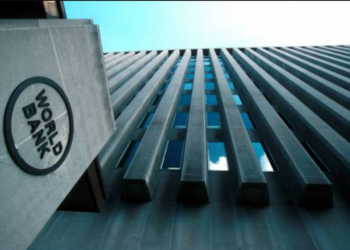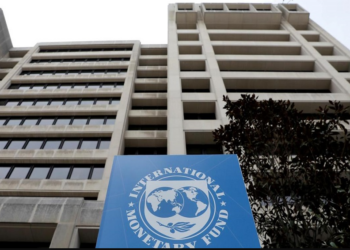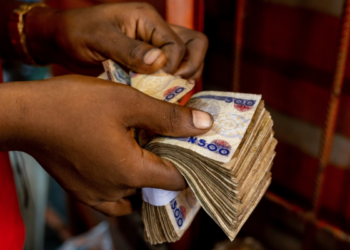- The World Bank’s assessment in 2021 positioned Nigeria as the fifth country with high debt risk exposure, shedding light on the country’s significant debt profile during the eight years of President Muhammadu Buhari’s administration.
- As President Buhari concludes his tenure, the article explores the impact of his leadership on Nigeria. Having served as both a military ruler and a democratically elected president, Buhari’s presidency garnered a mix of optimism and scepticism among Nigerians, who had high hopes for his promised “Change” agenda.
- The article provides a historical context, tracing Nigeria’s debt profile back to the military era, with various military generals at the helm of affairs.
In 2021, the World Bank ranked Nigeria fifth among the countries with high debt risk exposure; this best explains the debt profile of the country in the last eight years.
As President Muhammadu Buhari exits office after eight years of piloting the affairs of the country, conversation on the direction of the country under his tenure is unavoidable. Buhari will look back on his years and count himself as one of the few “privileged” individuals to have ruled the country.
He, along with former president Olusegun Obasanjo, served as the country’s head of state during the military regime and also as a democratically elected president. In a similar vein, they are the only individuals to have ruled the country for eight years.
The early days of Buhari’s presidency were filled with optimism and promises. The average Nigerian believed in his “Change” mantra to at least turn the fortunes of the country around. Eight years later, there are mixed reactions to this.
Buhari was no stranger to the Nigerian political scene. After he retires from the services of the Nigerian Army, he would resurface years later to contest for the position of president in the country. He ran for president under the All Nigeria People’s Party (ANPP) in the 2003 and 2007 elections but lost.
He also contested the 2011 general elections under the platform of the Congress for Progressive Change (CPC) but also lost. His victory would come in the 2015 general elections under the All Progressives Congress (APC).
He defeated his closest rival, Goodluck Jonathan, who at the time was the incumbent president, having scored over 53% of the total votes cast.
Nigeria’s debt history and the Buhari Years
Nigeria’s debt profile dates back to the military era, with not less than seven military generals at the helm of affairs in the country. The start of the fourth republic saw an end to the decade-long military rule in the country.
It’s important to state that borrowing itself is not a new thing in governance, and almost all countries in the world borrow to improve their economies and also carry out their social contract with the people. When eyebrows are raised, borrowing becomes high and continues to rise while the economy suffers.
The Obasanjo government met $28 billion in foreign debt (incurred during the military regime); he left with an external debt of $2.11 billion, which includes an $18 billion write-off debt owed to the London-Paris club.
The Yar’adua years, though short-lived, took the external debt to $3.5 billion, while the domestic debt was at N5.62 trillion. The Jonathan-led government added $3.8 billion to take the country’s total external debt to $7.35 billion, while the domestic debt was at N8.8 trillion.
In the last eight years of Buhari’s reign, the country’s external and domestic debt has greatly increased, leading to caution from different international organizations.
Debt record every year under Buhari
Nigeria’s debt profile rose every year under Buhari. According to the Debt Management Office (DMO), Nigeria’s external or foreign debt is categorized under multilateral (International Monetary Fund (IMF), World Bank Group, African Development Bank Group), bilateral (China, France, Japan, India, Germany), commercial, and others.
This means that most of the loans under the Buhari government were from those organizations, countries, and bodies. According to reports, at the end of his tenure, the total debt would have risen to an unprecedented $172 billion, which the incoming government of Bola Ahmed Tinubu will inherit.
Loans? How it was spent
One question that the average Nigerian would ask is, “How was the loan spent? According to President Buhari, in a series of interviews with members of his cabinet, they argued that for Nigeria to achieve some of its set targets, it must go to other countries or bodies for loans.
In 2017, the country secured a $7.5 billion loan from China for the construction of a standard rail gauge from Lagos to Kano. The country has also spent money on a series of infrastructural projects that were mostly funded by loans, such as the second Niger Bridge, among others.
Among these is the recent $800 million loan to cushion the effects of the removal of fuel subsidies.
Also, Nigeria’s debt rose as the government borrowed money to pay salaries and fund budgets. For budgetary allocations, Nigeria under his tenure borrowed money to be able to fund the budgetary allocations to different sectors of the economy.
However, one downside is the country’s debt servicing. Debt servicing is when a government pays back some of its loans to creditors. According to the World Bank, Nigeria spends 96.3% of its revenue on debt servicing. This means whatever Nigeria generates in a year, over 96% of it is used to pay back some of these loans.
This is detrimental to a country’s economy, as the government would have little or nothing left and would have to continue the cycle of borrowing.
What should the Tinubu government do?
Bola Ahmed Tinubu and Kashim Shettima are set to pilot the affairs of the country for the next four years. One of the things it’s inheriting is the debt profile of the country.
The rising debt of the country is a cause for concern, as the World Bank has warned that the country could spend almost 100% of its revenue on debt servicing in a few years.
One of the things the Tinubu government should do is reduce government expenditures. To reduce the country’s debt, the president should consider shifting the government’s expenditures from the executive to the legislature.
The funds accrued from this could be channelled into paying some of the loans. Also related to this is revenue. Increasing the country’s revenue is important, as the country can generate more money, some of which can be used for debt servicing, and have almost enough to fund its budget. In doing this, critical sectors such as agriculture and manufacturing should be looked at.
Also, his government could explore the possibility of extending the maturity of the debt. This means if we’re to repay a loan in 3 years, an extension could be considered, which would give the country some time to pay it off and also allow it to pay less every year or agreed terms.
In a similar vein, seeking debt relief as it was done under the Obasanjo government should be on the table.
A level of accountability and transparency on the part of the government is needed to ensure it gains the trust of the citizens during these times. As Buhari’s government comes to an end, the rising debt of the country is one he will be remembered for.
























